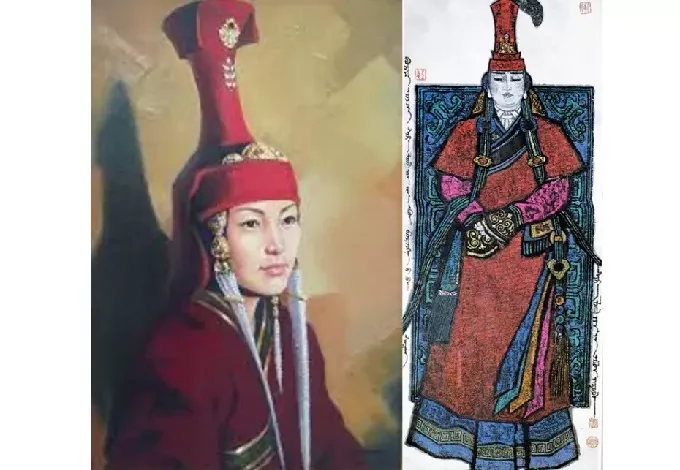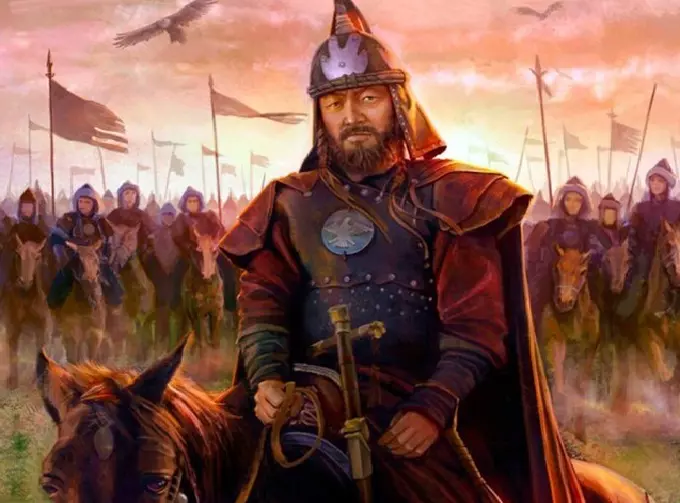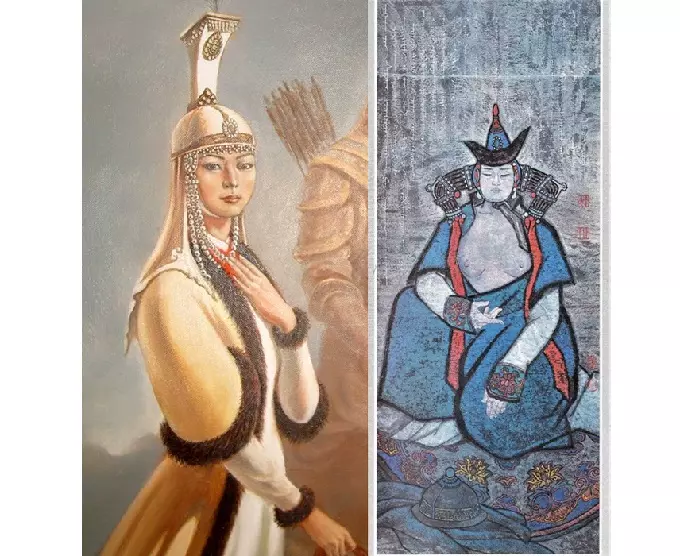Mongolian female warriors: Why did women rule Genghis Khan’s Empire?

The great conqueror Genghis Khan created the largest empire that ever existed. It will probably be difficult for many to imagine, but the key figures in all spheres of activity of the Mongol Empire were actually women. From participating in battles to ruling the state.
All the glory went to the Great Khan, the merits of women were forgotten, and all evidence is deliberately destroyed. Why did it happen, and who were the most powerful Mongols in the history of the great empire?
Mother and wife of the Great Khan
At the end of the 12th century, a young Mongolian girl became the wife of a man whom she practically did not know. All the time, while her husband was on campaigns, fighting and conquering, she controlled all those who remained at home. A very young girl deftly ruled a huge number of subjects, controlling all aspects of the daily life of a recalcitrant nomad.

Everyone obeyed her – from a simple shepherd to the highest-ranking military leader. She coordinated the complex seasonal migrations of thousands of people and their livestock. At the age of 28, this woman became the great Empress of the great Mongol Empire. The woman’s name was Borte.
Borte’s husband was the Great Khan Genghis, also known as Genghis Khan. All the glory went to him. Rightfully so, for he founded the largest empire the world has ever known. But Börte also made an exorbitantly huge contribution to this, and for some reason, they tried to forget it, put it out of history.
While the Mongol men bravely fought in distant lands, being on military campaigns for many years in a row, the Empress herself and ordinary Mongols kept the empire afloat. Some women also participated in the battles. For example, Marco Polo wrote about Genghis Khan’s great-great-granddaughter, Khutulun, that she pounced on the enemy “cleverly like a hawk.” Women played an extremely important role in the development of the great Mongol Empire.
What did the Mongolians do while their husbands were on a campaign?
Better to ask what was not part of their tasks. For example, the elder wife of Genghis Khan, Borte, was responsible not only specifically for their house and children. She was responsible for the entire camp. If caravans of merchants came, she negotiated with them. Daily household chores, such as cooking, sewing, or mending clothes, are also on her. Ambassadors arrived – you need to show hospitality and receive them with dignity. Among other things, the camp did not stand still, the nomads were constantly moving. This had to be done regularly depending on the season because the cattle needed pastures.
Women were responsible for all of this. They organized a procession of carts and led a long line of wagons, often drawn by oxen or yaks. When they came to a new place, they also set up the yurts and arranged them in the correct order. That is, while the men fought, the women did everything in their power so that their husbands had somewhere to return. And they did it excellently.
The era of official matriarchy after the death of Genghis Khan
The succession of the Mongols was very difficult. Women could only take the throne temporarily, on behalf of a male heir, usually their own son. So it happened with the most powerful ruler of the Mongols – Töregene Khatun. She became the regent of the entire Mongol Empire after the death of Genghis Khan’s son Ögedei Khan. This was also the case with Sorgahtani, who skillfully manipulated her son to single-handedly rule the entire empire. These women were senior widows, regents for men. In the nomadic Mongolian society, this practice was quite acceptable.

How Töregene became regent in 1241
This woman was special. She was the owner of a brilliant mind and outstanding organizational skills. She entered the dynasty under very unfavorable conditions. The Mongols killed her husband, and she herself became a war trophy. After Töregene became the wife of the third son of Genghis Khan, Ogedei. She was not the eldest wife, as Borte once was, but she gave birth to five healthy sons to the khan.
When Ogedei died, it was Töregene who became the regent. Convince did not express a desire to see one of the sons of his third wife as the next Great Khan, but she had her own opinion on this matter. She decided that it was her eldest son who would become the khan, and so it happened. Toregene knew how to get her way.
How did the Mongols themselves treat such powerful, empowered women?
Today it is not so easy to find out this question. After all, there are practically no historical records. If you think about it, then, most likely, society simply accepted this fact as a given. There are women who have power. They do certain things. They have responsibilities, they are asked for advice, they are listened to. This is fine. So, despite all the unusualness of the situation for an outside observer, for people living in these societies, all this was absolutely within the framework of their daily existence.
Mongolian women at war
There is indisputable historical evidence that the Mongol army included many more women than a modern layman can imagine. The army, about a fourth or fifth, consisted of the fair sex.
Women’s role in the formation of a great empire
So in the great Mongol Empire, women played far from the last role. Without them, there would be neither these greatest conquests nor the empire itself in principle. There would be nothing. This is due to the fact that in Mongolian society, almost all men in full force were able to mobilize instantly and go on a military campaign. No other society of that era was capable of anything like this. After all, their men were employed in all other areas and could not leave their work. They were priests, they had to cultivate the land, trade, and serve to ensure the administration and functioning of the state as a whole.
In Mongolia, women did all this without any problems. So without the representatives of the better half of humanity, who were left behind the scenes, men would not have achieved absolutely anything.




